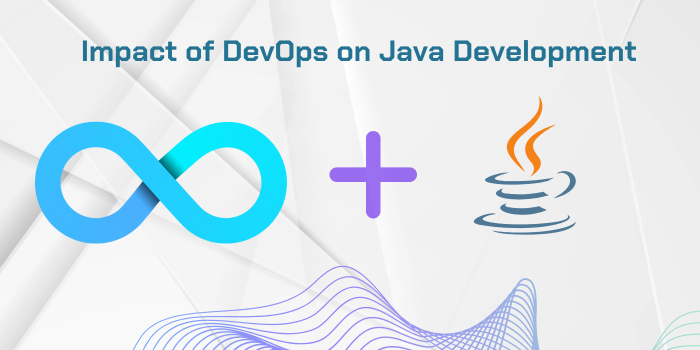The Impact of DevOps on Java Development: Best Practices and Tools

The Impact of DevOps on Java Development: Best Practices and Tools
In today’s fast-moving world of technology, DevOps has become very important, especially for Java developers. But if you’re new to DevOps, don’t worry! This article will break it down for you in simple terms and explain why it's a game-changer for Java development.
What is DevOps?
DevOps is a way of working that helps development (building apps) and operations (managing the apps and systems) teams work together. Instead of keeping these two teams separate, DevOps brings them closer, making the whole process of creating and launching apps faster and smoother. It’s like having a team that builds a car and a team that tests it working side by side, instead of one after the other.
Why DevOps is Important for Java Developers
Java is a popular programming language that many developers use to build big, strong, and reliable apps. However, the traditional way of developing apps can be slow because different teams often work in silos (separately), and there are many manual tasks involved.
DevOps solves these problems by:
Speeding Up Releases: With DevOps, you can release new features or updates to your app more often and more quickly. This is done by using automated pipelines (a way to handle repetitive tasks like testing and deployment).
Better Teamwork: DevOps encourages the development and operations teams to collaborate, meaning everyone shares the responsibility for the product.
Fewer Mistakes: Automation helps reduce human errors, which means fewer bugs and problems in your app.
Best Practices for Java DevOps
To take full advantage of DevOps when building Java applications, it’s good to follow some key practices:
Continuous Integration (CI): This means that developers frequently add new code to a shared space (like a team folder). Automated tools will test and check if everything works well together.
Continuous Delivery (CD): Once the code passes all the tests, it can be automatically prepared and sent to production (where users can see the updates), reducing the need for manual releases.
Infrastructure as Code (IaC): Instead of setting up servers and systems manually, tools like Terraform and Ansible help you do it with code. It’s like giving instructions to the computer so it knows how to set things up on its own.
Automate Testing: Tools like JUnit or Selenium help automate tests to ensure that the app is working correctly before being released.
Use Containers and Microservices: Tools like Docker allow you to package your Java app in a "container" so it works the same in any environment. Microservices help break down large apps into smaller, independent parts that can be developed and deployed separately.
Monitor and Analyze: Tools like Prometheus and Grafana help you keep track of how your app is performing and fix any problems before they become bigger issues.
Tools for Java DevOps
Here are some popular tools used in DevOps for Java development:
Jenkins: This tool automates the process of building, testing, and deploying Java applications. It’s like having a robot handle repetitive tasks for you.
Maven/Gradle: These tools help with building Java apps and managing libraries that your app needs.
Docker: This tool packages your app and its environment into one place, making sure it works the same on every computer or server.
Kubernetes: This platform manages and organizes containerized applications, making sure everything runs smoothly.
SonarQube: A tool that helps check your code to ensure it’s of high quality and secure.
GitLab/GitHub CI: These platforms help automate the entire development process, from writing the code to deploying it to production.
Conclusion
DevOps has changed how Java applications are built, tested, and deployed. For beginners, it may sound complicated at first, but it’s really about making things faster, more efficient, and less prone to errors. By following best practices like continuous integration and automated testing, and using the right tools, Java teams can develop apps more effectively. Ultimately, DevOps helps deliver better software with fewer issues, making it a must-have in today’s software development world.
Starting with DevOps may feel overwhelming, but once you get the hang of it, it becomes a powerful way to improve your development process and keep your applications running smoothly!

